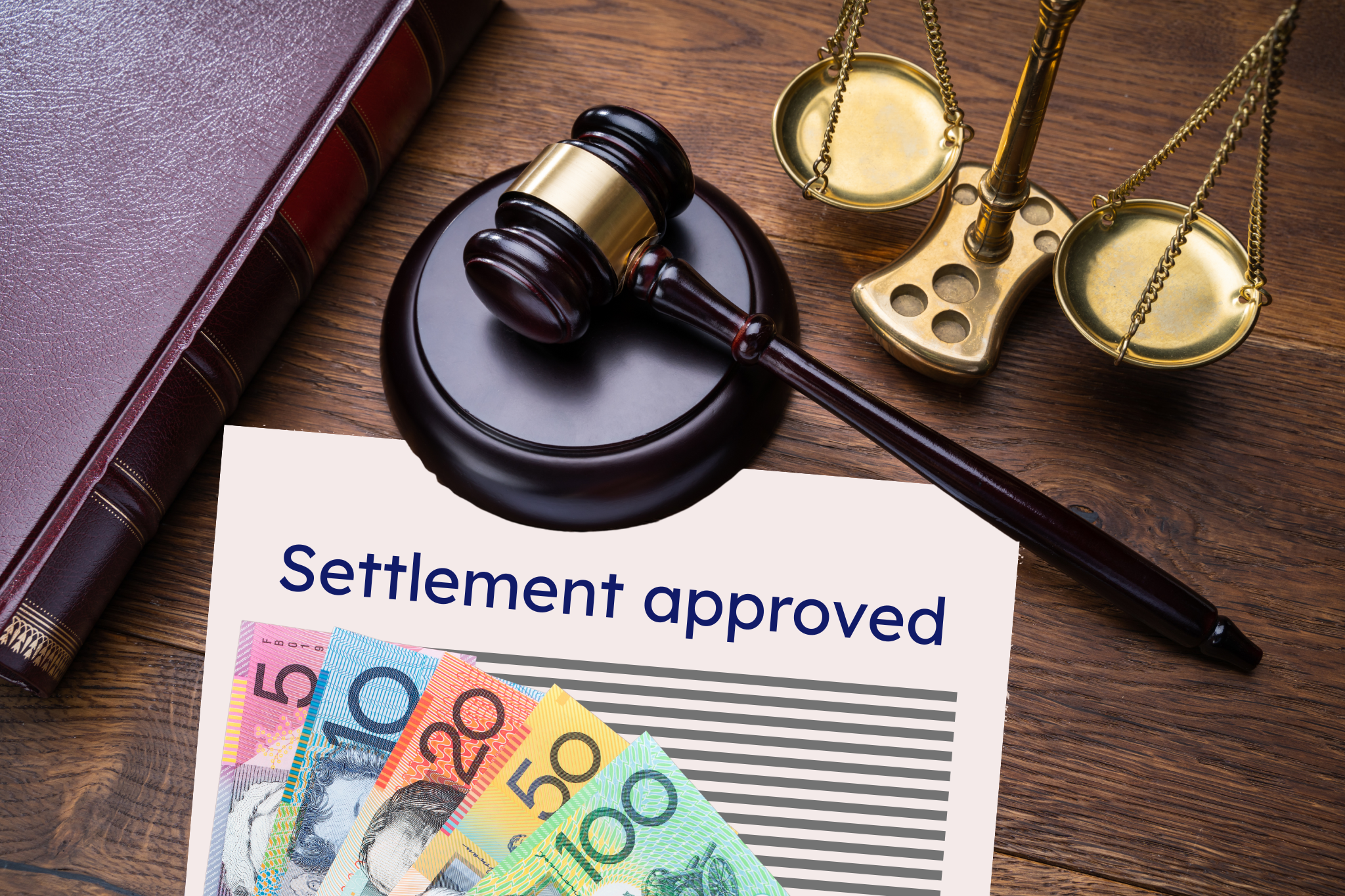
Taking credit: Don’t pay for your credit report
Last updated on May 29th, 2025
We’ve all seen the ads encouraging us to find out our credit score or check our credit report, but how much do we really know about the process?
According to Choice, one in three Australians have no idea how credit reporting works and have never seen their credit report.
A credit report, also known as a credit file, helps financial institutions determine whether or not to lend money to an individual. A good credit history indicates that you are likely to pay your debts on time and in full. Poor credit history could make it difficult - even impossible - to get approval for loans, car leases, mortgages, or other forms of financing.
It pays to check yours at least once a year because, a bit like a school report for adults, it gives you a good indication of how you’re tracking if you’re thinking of borrowing money in the future.
It’s also a good way to find out if you’ve been a victim of identity theft.
Most importantly, you should be aware you can access yours once a year for free. There is no need to pay a fee for your credit file, so don’t fall for those ads.
Let’s take a look at what you need to know.
How credit reporting works
Credit reporting is a system used by lenders to gather information about an individual's credit-worthiness. It involves you, a credit provider and credit reporting agencies. You give your personal information to a credit provider whenever you apply for credit. The latter shares the credit-related information with credit reporting agencies, which, in turn, create the credit report.

Besides your personal information, your credit report contains:
-
- Information about your credit history for the last two years, including
- The credit provider
- The amount of debt you have
- The types of loans you have taken out
- How long it has been since you last paid them off
- Missed payments
- Defaults
- Credit score - Scoring depends on the credit reporting agency but usually, it’s from 0 to 1000 or 1200; the higher your score, the more credit-worthy you are
- Bankruptcies
- Debt agreements
- Court judgments
- Personal insolvency agreements in your name
- Who accessed your credit report
- Information about your credit history for the last two years, including
To find out how long this data stays on your report, visit the Office of the Australian Information Commissioner’s (OAIC) page on credit reports.
The three biggest credit reporting bureaus in Australia are Experian, illion and Equifax. Each holds different information about you, so you have a credit report with more than one agency. Banks and other creditors can use any or all of them at the same time.
As to which contains the most accurate information, Tippla says there’s no clear-cut answer. Each agency has its own strengths and weaknesses. Some companies, such as Equifax, are better at tracking your overall credit history. Others focus on specific types of credits (such as mortgages or car loans).
How to access your credit report
Under the Privacy Act, you’re entitled to a free credit report once a year. You can also get a free credit report if your credit-related personal information has been corrected or you’ve been refused credit within the past 90 days. To access, contact any of these credit reporting agencies:
You have to provide primary and/or secondary IDs to confirm your identity. You can access the report online in one or two days or wait for about 10 days for it to be emailed or mailed to you.

As the different agencies may hold different credit-related information about you, it is advisable to ask for a report from more than one.
There are other, less prominent, credit reporting agencies not listed above. Just be wary of companies charging you excessive fees.
Who can access my credit report?
Only you and authorised agencies, such as an Australian credit reporting body, a credit provider, a mortgage insurer, a trade insurer and a debt collector acting as an agent for a credit provider, have access to your credit report. These parties can run a credit check on you without your permission.
This is because your credit report contains sensitive personal information, such as your driver’s license number, date of birth, and current and previous addresses.
A real estate agent, landlord, employer, foreign credit provider, foreign credit reporting body or an insurance company (other than mortgage insurer and trade insurer) are not allowed access to your credit report. And your spouse cannot access your report - even if you have joint accounts.
In some instances, these third parties may ask for a copy of your credit report. If you were applying for a job in, for example, financial administration, your respective employer may run credit checks on you. But they can only do so with your permission.
If you're curious about which agencies have access to your credit report, check out the OAIC’s website. There, you can find a list of the agencies authorised to receive your credit report.
Problems with credit reporting
Credit reporting is not without its issues. One of the biggest issues is the volume of mistakes and errors that routinely occur.
Choice found that a whopping 67 percent of credit reports contained errors and that those errors could lead to people being denied loans, mortgages, and other types of credit they may otherwise be granted. In the case of Jessica, her details were mixed up with another person of the same name and she was denied a home loan through no fault of her own.
These mistakes can be the result of human error or simply because credit reporting agencies are often working with outdated information. It can also be the result of identity theft. If there are loans or debts in your report that you know nothing about, it could mean someone has stolen your identity.
How do I fix these errors?
It can be difficult to get errors corrected. Credit reporting agencies are not always responsive to requests to fix mistakes, and they may not be willing to correct information that is inaccurate. Instead, they will pass the responsibility on to credit providers. Don’t let them fob you off. Under the Privacy Act, credit agencies must do the correction themselves.
If you find an error on your credit report, contact the agency that issued the report. Usually, you can get a corrected report within 30 days.

But before you dispute a credit report error, remember that it could help or hurt your credit score. If the creditor can't verify the information, it will be removed from your report. However, if you're incorrect about the information or you don't have any proof to back up your claim, it could actually hurt your score. So before you dispute anything, ensure you have all of your facts straight.
Perversely, even though it contains your details, a credit report is not designed with you in mind. As IDCare’s managing director David Lacey puts it: "it's an industry that's been built on business-to-business relationships, even though it's based on consumer data. The reports are not really designed for consumers to readily understand.”
Although there are guides available, such as this definition of terms from OAIC, credit reports can still defy comprehension. This is where credit repair agencies step into the fray.
What is a credit repair agency?
A credit repair agency is a third-party company that you can authorise to access your credit files for analysis to determine any potential issues and have them corrected. This may involve contacting creditors, ensuring payments are recorded on time, and mitigating adverse items such as bankruptcies or liens.
Credit repair may help improve a person’s credit score, which could lead to better borrowing conditions and reduced costs. Additionally, it can help rebuild a damaged reputation in the eyes of lenders.
Do you need a credit repair agency?
It depends on your situation. Some factors you may want to consider include whether you feel confident managing your own credit file and finances, whether any adverse items have been corrected recently, and how much money you are willing to spend.
Credit repair agencies charge you for the time spent reviewing your file, contacting creditors, and providing guidance. On the other hand, repairing credit on your own is free and simple — if you understand the report.
It is important to be aware that not all providers offer quality services at an affordable price. Credit repair agencies don’t have the best reputation and often charge exorbitant fees. Some may also push you into signing up for unnecessary services.

Just as creditors are doing their background checks on you before determining whether or not to lend you money, do your due diligence on credit repair agencies before engaging their services. Not all are legitimate.
Should you decide to use a credit repair agency, beware of promises to 'clean' your credit report by having information removed. This may not be possible. Information that is correct, even if you don't like it, can't be removed.
Other red flags may include misleading advertising, unverifiable claims about how the company can improve your credit score, and aggressive sales tactics.
If you have any concerns about a credit reporting agency or credit repair agency you are working with, complaints may be taken to the Australian Financial Complaints Authority. But you should try to settle your issue with the agency before approaching the Ombudsman. Or ask us to help you - just say the magic words “Help me handle it” and we’ll come to the rescue.






